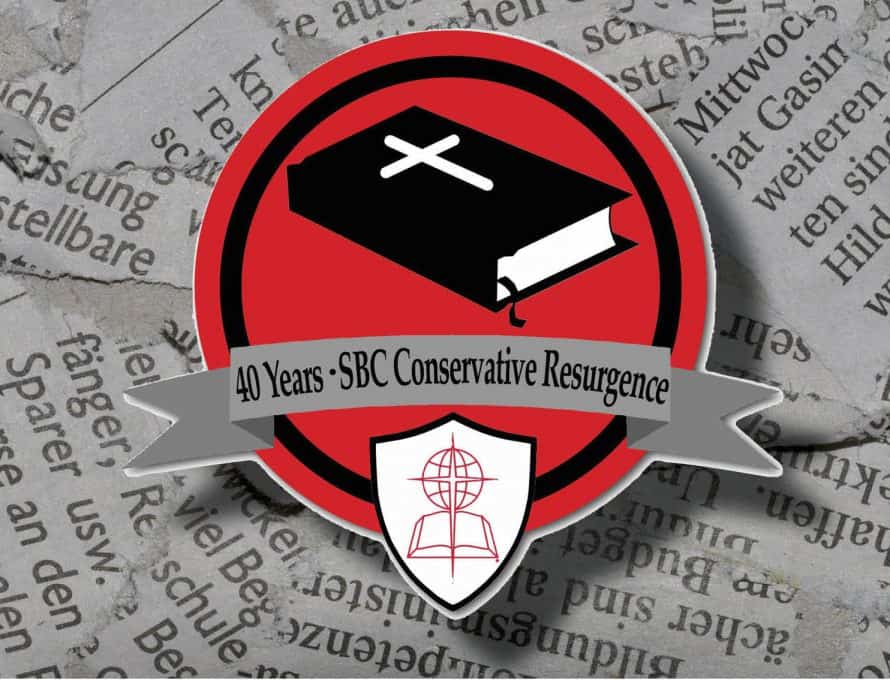EDITOR’S NOTE: This is the latest article in a year-long series, commemorating the history of the Conservative Resurgence of the Southern Baptist Convention (SBC) in honor of its 40th anniversary. To read previous articles, visit www.mbcpathway.com/ConservativeResurgence.
JEFFERSON CITY – The Conservative Resurgence in the Southern Baptist Convention (SBC) wouldn’t have happened apart from the journalistic efforts of conservatives in the SBC, Missouri Baptist Convention (MBC) Executive Director John Yeats told Pathway staff, freelance writers, columnists and photographers during the newspaper’s annual Journalism Retreat, Sept. 26-27.
Yeats especially praised the contribution Southern Baptist journalist James Hefley, author of the Truth in Crisis, a six-volume journalistic account of the controversy in the SBC. “At great cost,” Yeats told The Pathway, “he exposed what was going on in the context of SBC life.”
During the retreat, Yeats reflected on his own experience as a Southern Baptist newspaper editor in the later years of the Conservative Resurgence. In the early-to-mid 1990s, Yeats started The Plumbline – a conservative Baptist newspaper that set the stage for the Southern Baptist TEXAN (texasonline.net), the current news journal for the Southern Baptist of Texas Convention. Then, from 1996-1997, Yeats served as editor of the Indiana Baptist newspaper, which had been a beacon for conservatives during the heyday of the Conservative Resurgence.
Then, in 1997, Yeats became editor of the Oklahoma Baptist Messenger, a position he held until 2005. Prior to coming to the MBC in 2012, he then served as director of communications and public policy for the Louisiana Baptist Convention.
As conservative newspapers, the Indiana Baptist and The Plumbline reported “another side to the story” of the Conservative Resurgence, Yeats said during the Pathway retreat. These newspapers shared an angle on the denominational controversy that was often ignored by other newspapers in the SBC. Baptists needed to know the truth of what was happening in their denomination, and they looked to these conservative newspapers to tell them.
But these newspapers succeeded also because they didn’t become wholly engulfed by the controversy, Yeats added. They realized that they needed, above all, to share the story of God’s work among Southern Baptists.
“We as conservatives always win when we tell the story of God at work among His people,” Yeats said, “because it’s the activity of the Word of God fleshed out through them that makes the difference.”
The Pathway’s Journalism Retreat also featured two other guest speakers: Pat Hudson – who serves as assistant professor of communications and history at Midwestern Baptist Theological Seminary’s (MBTS) Spurgeon College and as MBTS’s Institutional Editor – stressed the truth of God’s Word in an age of “Fake News.” Also, Donna Fishel – a member of Second Baptist Church, Springfield, with decades of experience in media and public relations, as well as experience teaching journalism – highlighted “best practices for busy writers.” Fishel is also the wife of Missouri state Representative Craig Fishel. Jeremiah Greever, Pathway columnist and senior pastor of First Baptist Church St. John, brought a morning devotion during the second day of the retreat.
Through the years, The Pathway’s Journalism Retreat has featured numerous esteemed writers and journalists, including Baptist Press editors Art Toalston and Shawn Hendricks; Tammi Ledbetter of the Southern Baptist TEXAN; Will Hall, editor of Louisiana’s Baptist Message; Scott Lamb, author and senior vice president of communications and public engagement at Liberty University; J. Alan Branch, author and professor of Christian Ethics at Midwestern Baptist Theological Seminary; Col. Jim Coy, author and medical consultant for the U.S. Army Special Operations Command; and Rob Phillips, author, apologist and ministry support director for the MBC.
The Pathway itself was born out of the Conservative Resurgence in 2001.

